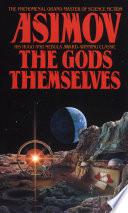Isaac Asimov's Book of Science and Nature Quotations (1988), edited with Jason A. Shulman, p. 281
General sources
Works
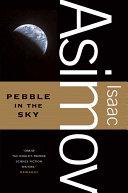
Pebble in the Sky
Isaac Asimov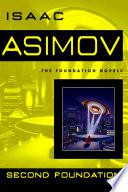
Second Foundation
Isaac Asimov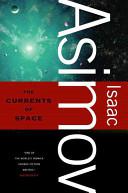
The Currents of Space
Isaac Asimov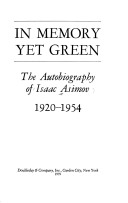
In Memory Yet Green
Isaac Asimov
Forward the Foundation
Isaac Asimov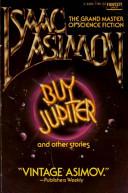
Buy Jupiter and Other Stories
Isaac Asimov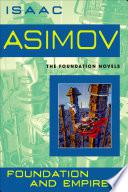
Foundation and Empire
Isaac AsimovThe Last Question
Isaac AsimovThe Caves of Steel
Isaac Asimov
Foundation’s Edge
Isaac AsimovRunaround
Isaac Asimov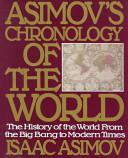
Asimov's Chronology of the World
Isaac AsimovBanquets of the Black Widowers
Isaac Asimov
Puzzles of the Black Widowers
Isaac AsimovFact and Fancy
Isaac Asimov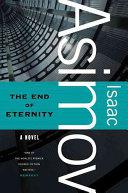
The End of Eternity
Isaac AsimovThe Dead Past
Isaac Asimov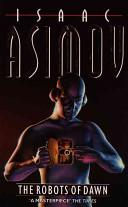
The Robots of Dawn
Isaac AsimovFoundation and Earth
Isaac AsimovBefore the Golden Age
Isaac Asimov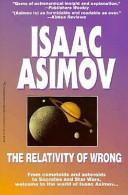
The Relativity of Wrong
Isaac Asimov
Robots and Empire
Isaac AsimovThe Bicentennial Man and Other Stories
Isaac AsimovThe Gentle Vultures
Isaac AsimovThe Tragedy of the Moon
Isaac Asimov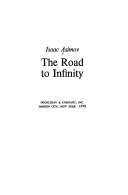
The Road to Infinity
Isaac AsimovHistory
Isaac AsimovHalf-Breed
Isaac AsimovFamous Isaac Asimov Quotes
“Those people who think they know everything are a great annoyance to those of us who do.”
As quoted in The Mammoth Book of Zingers, Quips, and One-Liners (2004) edited by Geoff Tibballs, p. 299
General sources
Isaac Asimov Quotes about life
“It has been my philosophy of life that difficulties vanish when faced boldly”
Variant: It has been my philosophy of life that difficulties vanish when faced boldly.
Source: Foundation
"A Cult of Ignorance", Newsweek (21 January 1980) http://media.aphelis.net/wp-content/uploads/2012/04/ASIMOV_1980_Cult_of_Ignorance.pdf
General sources
Context: There is a cult of ignorance in the United States, and there always has been. The strain of anti-intellectualism has been a constant thread winding its way through our political and cultural life, nurtured by the false notion that democracy means that "my ignorance is just as good as your knowledge."
As quoted in Philosophy on the Go (2007) by Joey Green, p. 222
General sources
Isaac Asimov Quotes about people
Source: The Foundation series (1951–1993), Foundation’s Edge (1982), Chapter 11 “Sayshell” section 3, p. 205
Source: Foundation's Edge
Context: Pelorat sighed. “I will never understand people.”
“There’s nothing to it. All you have to do is take a close look at yourself and you will understand everyone else. We’re in no way different ourselves... You show me someone who can’t understand people and I’ll show you someone who has built up a false image of himself.”
Isaac Asimov: Trending quotes
“I accept nothing on authority. A hypothesis must be backed by reason, or else it is worthless.”
“Reason”, p. 52
I, Robot (1950)
Isaac Asimov Quotes
“If my doctor told me I had only six minutes to live, I wouldn't brood. I'd type a little faster.”
Variant: If my doctor told me I had only six minutes to live, I wouldn’t brood. I’d type a little faster. Časopis LIFE, január 1984
“Properly read, it is the most potent force for atheism ever conceived.”
As quoted in Notes for a Memoir : On Isaac Asimov, Life, and Writing (2006) by Janet Jeppson Asimov, p. 58
General sources
Variant: Properly read, the Bible is the most potent force for atheism ever conceived.
Context: If you suspect that my interest in the Bible is going to inspire me with sudden enthusiasm for Judaism and make me a convert of mountain‐moving fervor and that I shall suddenly grow long earlocks and learn Hebrew and go about denouncing the heathen — you little know the effect of the Bible on me. Properly read, it is the most potent force for atheism ever conceived.
“What I will be remembered for are the Foundation Trilogy and the Three Laws of Robotics.”
Yours, Isaac Asimov (20 September 1973) <!-- page 329 -->
General sources
Context: What I will be remembered for are the Foundation Trilogy and the Three Laws of Robotics. What I want to be remembered for is no one book, or no dozen books. Any single thing I have written can be paralleled or even surpassed by something someone else has done. However, my total corpus for quantity, quality and variety can be duplicated by no one else. That is what I want to be remembered for.
"Introduction" to The Best of Isaac Asimov (1973)<!-- , p. ix -->
The Last Question (1956)
Context: "The Last Question" is my personal favorite, the one story I made sure would not be omitted from this collection. Why is it my favorite? For one thing I got the idea all at once and didn't have to fiddle with it; and I wrote it in white-heat and scarcely had to change a word. This sort of thing endears any story to any writer.
Then, too, it has had the strangest effect on my readers. Frequently someone writes to ask me if I can give them the name of a story, which they think I may have written, and tell them where to find it. They don't remember the title but when they describe the story it is invariably "The Last Question". This has reached the point where I recently received a long-distance phone call from a desperate man who began, "Dr. Asimov, there's a story I think you wrote, whose title I can't remember—" at which point I interrupted to tell him it was "The Last Question" and when I described the plot it proved to be indeed the story he was after. I left him convinced I could read minds at a distance of a thousand miles.
No other story I have written has anything like this effect on my readers — producing at once an unshakeable memory of the plot and an unshakeable forgettery of the title and even author. I think it may be that the story fills them so frighteningly full, that they can retain none of the side-issues.
“When you write a short story … you had better know the ending first.”
The Casebook of the Black Widowers (1980), p. 177
General sources
Context: When you write a short story... you had better know the ending first. The end of a story is only the end to the reader. To the writer, it's the beginning. If you don't know exactly where you're going every minute you're writing, you'll never get there — or anywhere.
"My Own View" in The Encyclopedia of Science Fiction (1978) edited by Robert Holdstock; later published in Asimov on Science Fiction (1981)
General sources
Source: The Bicentennial Man and Other Stories
"The Tragedy of the Moon," The Magazine of Fantasy and Science Fiction (July 1972)
General sources
Source: Short fiction, The Early Asimov Book One (1972), Half-Breed (p. 160)
“Never let your sense of morals prevent you from doing what is right.”
Part IV, The Traders, section 1; originally published as “The Wedge” in Astounding (October 1944)
Source: The Foundation series (1951–1993), Foundation (1951)
Attributed in the "quote of the day" source code of the “Fortune” computer program (June 1987); more at "The Most Exciting Phrase in Science Is Not ‘Eureka!’ But ‘That’s funny …’" at Quote Investigator https://quoteinvestigator.com/2015/03/02/eureka-funny/
General sources
“Self-education is, I firmly believe, the only kind of education there is.”
"Science Past, Science Future" (1975) p. 208
General sources
“There are limits beyond which your folly will not carry you.”
Doctor Susan Calvin in "Robot Dreams" in Robot Dreams (1986)
General sources
Context: There are limits beyond which your folly will not carry you. I am glad of that. In fact, I am relieved.
Source: I. Asimov: A Memoir (1994), Ch. 8, Library
Context: I received the fundamentals of my education in school, but that was not enough. My real education, the superstructure, the details, the true architecture, I got out of the public library. For an impoverished child whose family could not afford to buy books, the library was the open door to wonder and achievement, and I can never be sufficiently grateful that I had the wit to charge through that door and make the most of it.
Now, when I read constantly about the way in which library funds are being cut and cut, I can only think that the door is closing and that American society has found one more way to destroy itself.
“People are entirely too disbelieving of coincidence.”
" The Planet that Wasn't http://geobeck.tripod.com/frontier/planet.htm" originally published in The Magazine of Fantasy and Science Fiction (May 1975)
General sources
Context: People are entirely too disbelieving of coincidence. They are far too ready to dismiss it and to build arcane structures of extremely rickety substance in order to avoid it. I, on the other hand, see coincidence everywhere as an inevitable consequence of the laws of probability, according to which having no unusual coincidence is far more unusual than any coincidence could possibly be.
Source: The Roving Mind (1983), Ch. 25
Context: How often people speak of art and science as though they were two entirely different things, with no interconnection. An artist is emotional, they think, and uses only his intuition; he sees all at once and has no need of reason. A scientist is cold, they think, and uses only his reason; he argues carefully step by step, and needs no imagination. That is all wrong. The true artist is quite rational as well as imaginative and knows what he is doing; if he does not, his art suffers. The true scientist is quite imaginative as well as rational, and sometimes leaps to solutions where reason can follow only slowly; if he does not, his science suffers.
“It's a system for testing your thoughts against the universe and seeing whether they match.”
Interview by Bill Moyers on Bill Moyers' World Of Ideas (21 October 1988); transcript http://www-tc.pbs.org/moyers/faithandreason/print/pdfs/woi%20asimov2.pdf (pages 5-6)
General sources
Context: Science doesn't purvey absolute truth. Science is a mechanism. It's a way of trying to improve your knowledge of nature. It's a system for testing your thoughts against the universe and seeing whether they match. And this works, not just for the ordinary aspects of science, but for all of life. I should think people would want to know that what they know is truly what the universe is like, or at least as close as they can get to it.
“We are meant to know, or we are amoebae.”
The New Hugo Winners: Award-winning Science Fiction Stories Vol. 1 (1989)<!-- Afterword to "Speech Sounds" -->, p. 215
General sources
Context: We are meant to know, or we are amoebae.
Suppose that we are wise enough to learn and know — and yet not wise enough to control our learning and knowledge, so that we use it to destroy ourselves?
Even if that is so, knowledge remains better than ignorance. It is better to know — even if the knowledge endured only for the moment that comes before destruction — than to gain eternal life at the price of a dull and swinish lack of comprehension of a universe that swirls unseen before us in all its wonder. That was the choice of Achilles, and it is mine, too.
I. Asimov: A Memoir (1994)
Context: If I were not an atheist, I would believe in a God who would choose to save people on the basis of the totality of their lives and not the pattern of their words. I think he would prefer an honest and righteous atheist to a TV preacher whose every word is God, God, God, and whose every deed is foul, foul, foul.
I would also want a God who would not allow a Hell. Infinite torture can only be a punishment for infinite evil, and I don't believe that infinite evil can be said to exist even in the case of Hitler. Besides, if most human governments are civilized enough to try to eliminate torture and outlaw cruel and unusual punishments, can we expect anything less of an all-merciful God?
I feel that if there were an afterlife, punishment for evil would be reasonable and of a fixed term. And I feel that the longest and worst punishment should be reserved for those who slandered God by inventing Hell.
General sources
Source: "My Own View" in The Encyclopedia of Science Fiction (1978) edited by Robert Holdstock;
Context: It is change, continuing change, inevitable change, that is the dominant factor in society today. No sensible decision can be made any longer without taking into account not only the world as it is, but the world as it will be... This, in turn, means that our statesmen, our businessmen, our everyman must take on a science fictional way of thinking.
Source: The Foundation series (1951–1993), Foundation’s Edge (1982), Chapter 8 “Farmwoman” section 5, p. 154
“It is the invariable lesson to humanity that distance in time, and in space as well, lends focus.”
Source: The Foundation series (1951–1993), Foundation and Empire (1952), Chapter 13 “Lieutenant and Clown”
Context: It is the invariable lesson to humanity that distance in time, and in space as well, lends focus. It is not recorded, incidentally, that the lesson has ever been permanently learned.
“That is what I want to be remembered for.”
Yours, Isaac Asimov (20 September 1973) <!-- page 329 -->
General sources
Context: What I will be remembered for are the Foundation Trilogy and the Three Laws of Robotics. What I want to be remembered for is no one book, or no dozen books. Any single thing I have written can be paralleled or even surpassed by something someone else has done. However, my total corpus for quantity, quality and variety can be duplicated by no one else. That is what I want to be remembered for.
Source: The Roving Mind (1983), p. 43
Context: Don't you believe in flying saucers, they ask me? Don't you believe in telepathy? — in ancient astronauts? — in the Bermuda triangle? — in life after death?
No, I reply. No, no, no, no, and again no.
One person recently, goaded into desperation by the litany of unrelieved negation, burst out "Don't you believe in anything?"
"Yes", I said. "I believe in evidence. I believe in observation, measurement, and reasoning, confirmed by independent observers. I'll believe anything, no matter how wild and ridiculous, if there is evidence for it. The wilder and more ridiculous something is, however, the firmer and more solid the evidence will have to be."
“Those creatures from the para-Universe are trying to make themselves understood.”
Section 1 “Against stupidity...”, Chapter 6, p. 12
The Gods Themselves (1972)
Context: "Don't finish, Pete. I've heard it all before. All I have to do is decipher the thinking of a non-human intelligence."
"A better-than-human intelligence. Those creatures from the para-Universe are trying to make themselves understood."
"That may be," sighed Bronowski, "but they're trying to do it through my intelligence, which is better than human I sometimes think, but not much. Sometimes, in the dark of the night, I lie awake and wonder if different intelligences can communicate at all; or, if I've had a particularly bad day, whether the phrase 'different intelligences' has meaning at all."
"It does," said Lamont savagely, his hands clearly bailing into fists within his lab coat pockets. "It means Hallam and me. It means that fool-hero, Dr. Frederick Hallam and me. We're different intelligences because when I talk to him he doesn't understand. His idiot face gets redder and his eyes bulge and his ears block. I'd say his mind stops functioning, but lack the proof of any other state from which it might stop."
“When the twenty-seven independent Trading Worlds”
Source: The Foundation series (1951–1993), Foundation and Empire (1952), Chapter 16 “Conference”
Context: “When the twenty-seven independent Trading Worlds, united only by their distrust of mother planet of the Foundation, concert an assembly among themselves, and each is big with a pride grown of its smallness, hardened by its own insularity and embittered by eternal danger — there are preliminary negotiations to be overcome of a pettiness sufficiently staggering to heart-sicken the most persevering.”
Source: The Roving Mind (1983), Ch. 25
Context: How often people speak of art and science as though they were two entirely different things, with no interconnection. An artist is emotional, they think, and uses only his intuition; he sees all at once and has no need of reason. A scientist is cold, they think, and uses only his reason; he argues carefully step by step, and needs no imagination. That is all wrong. The true artist is quite rational as well as imaginative and knows what he is doing; if he does not, his art suffers. The true scientist is quite imaginative as well as rational, and sometimes leaps to solutions where reason can follow only slowly; if he does not, his science suffers.
“I made up my mind long ago to follow one cardinal rule in all my writing — to be clear.”
Introduction to Nemesis (1989)
General sources
Context: I made up my mind long ago to follow one cardinal rule in all my writing — to be clear. I have given up all thought of writing poetically or symbolically or experimentally, or in any of the other modes that might (if I were good enough) get me a Pulitzer prize. I would write merely clearly and in this way establish a warm relationship between myself and my readers, and the professional critics — Well, they can do whatever they wish.
Part II, The Encyclopedists, section 2 (originally published as “Foundation” in Astounding (May 1942)
The Foundation series (1951–1993), Foundation (1951)
Context: “That insufferable, dull-witted donkey! That—”
Hardin broke in: “Not at all. He’s merely the product of his environment. He doesn’t understand much except that ‘I got a gun and you ain’t.’ ”
"Introduction" to The Best of Isaac Asimov (1973)<!-- , p. ix -->
The Last Question (1956)
Context: "The Last Question" is my personal favorite, the one story I made sure would not be omitted from this collection. Why is it my favorite? For one thing I got the idea all at once and didn't have to fiddle with it; and I wrote it in white-heat and scarcely had to change a word. This sort of thing endears any story to any writer.
Then, too, it has had the strangest effect on my readers. Frequently someone writes to ask me if I can give them the name of a story, which they think I may have written, and tell them where to find it. They don't remember the title but when they describe the story it is invariably "The Last Question". This has reached the point where I recently received a long-distance phone call from a desperate man who began, "Dr. Asimov, there's a story I think you wrote, whose title I can't remember—" at which point I interrupted to tell him it was "The Last Question" and when I described the plot it proved to be indeed the story he was after. I left him convinced I could read minds at a distance of a thousand miles.
No other story I have written has anything like this effect on my readers — producing at once an unshakeable memory of the plot and an unshakeable forgettery of the title and even author. I think it may be that the story fills them so frighteningly full, that they can retain none of the side-issues.
The New Hugo Winners: Award-winning Science Fiction Stories Vol. 1 (1989)<!-- Afterword to "Speech Sounds" -->, p. 215
General sources
Context: We are meant to know, or we are amoebae.
Suppose that we are wise enough to learn and know — and yet not wise enough to control our learning and knowledge, so that we use it to destroy ourselves?
Even if that is so, knowledge remains better than ignorance. It is better to know — even if the knowledge endured only for the moment that comes before destruction — than to gain eternal life at the price of a dull and swinish lack of comprehension of a universe that swirls unseen before us in all its wonder. That was the choice of Achilles, and it is mine, too.
“Stories grow by accretion. Tales accumulate — like dust.”
Source: The Foundation series (1951–1993), Foundation’s Edge (1982), Chapter 17 “Gaia” section 5, p. 361
Context: “Stories grow by accretion. Tales accumulate — like dust. The longer the time lapse, the dustier the history — until it degenerates into fables.”
Pelorat said, “We historians are familiar with the process, Dom. There is a certain preference for the fable. The falsely dramatic drives out the truly dull.”
“We can all be members of the intellectual elite”
"A Cult of Ignorance", Newsweek (21 January 1980)
General sources
Context: I believe that every human being with a physically normal brain can learn a great deal and can be surprisingly intellectual. I believe that what we badly need is social approval of learning and social rewards for learning.
We can all be members of the intellectual elite and then, and only then, will a phrase like "America's right to know" and, indeed, any true concept of democracy, have any meaning.
Source: I. Asimov: A Memoir (1994), p. 308
Context: He always pictured himself a libertarian, which to my way of thinking means "I want the liberty to grow rich and you can have the liberty to starve". It's easy to believe that no one should depend on society for help when you yourself happen not to need such help.
"Introduction" in The Best of Isaac Asimov (1973)
General sources
Context: !-- I must admit the title of this book gives me pause. Who says the enclosed stories are my ‘best’? Do I? Does the editor? Or some critic? Some reader? A general vote among the entire population of the world?
And whoever says it — can it be so? --> Can the word ‘best’ mean anything at all, except to some particular person in some particular mood? Perhaps not — so if we allow the word to stand as an absolute, you, or you, or perhaps you, may be appalled at omissions or inclusions or, never having read me before, may even be impelled to cry out, ‘Good heavens, are those his best?
I. Asimov: A Memoir (1994)
Context: If I were not an atheist, I would believe in a God who would choose to save people on the basis of the totality of their lives and not the pattern of their words. I think he would prefer an honest and righteous atheist to a TV preacher whose every word is God, God, God, and whose every deed is foul, foul, foul.
I would also want a God who would not allow a Hell. Infinite torture can only be a punishment for infinite evil, and I don't believe that infinite evil can be said to exist even in the case of Hitler. Besides, if most human governments are civilized enough to try to eliminate torture and outlaw cruel and unusual punishments, can we expect anything less of an all-merciful God?
I feel that if there were an afterlife, punishment for evil would be reasonable and of a fixed term. And I feel that the longest and worst punishment should be reserved for those who slandered God by inventing Hell.
I. Asimov: A Memoir (1994)
Context: If I were not an atheist, I would believe in a God who would choose to save people on the basis of the totality of their lives and not the pattern of their words. I think he would prefer an honest and righteous atheist to a TV preacher whose every word is God, God, God, and whose every deed is foul, foul, foul.
I would also want a God who would not allow a Hell. Infinite torture can only be a punishment for infinite evil, and I don't believe that infinite evil can be said to exist even in the case of Hitler. Besides, if most human governments are civilized enough to try to eliminate torture and outlaw cruel and unusual punishments, can we expect anything less of an all-merciful God?
I feel that if there were an afterlife, punishment for evil would be reasonable and of a fixed term. And I feel that the longest and worst punishment should be reserved for those who slandered God by inventing Hell.
“Science doesn't purvey absolute truth.”
Interview by Bill Moyers on Bill Moyers' World Of Ideas (21 October 1988); transcript http://www-tc.pbs.org/moyers/faithandreason/print/pdfs/woi%20asimov2.pdf (pages 5-6)
General sources
Context: Science doesn't purvey absolute truth. Science is a mechanism. It's a way of trying to improve your knowledge of nature. It's a system for testing your thoughts against the universe and seeing whether they match. And this works, not just for the ordinary aspects of science, but for all of life. I should think people would want to know that what they know is truly what the universe is like, or at least as close as they can get to it.
General sources
Context: I am an atheist, out and out. It took me a long time to say it. I've been an atheist for years and years, but somehow I felt it was intellectually unrespectable to say one was an atheist, because it assumed knowledge that one didn't have. Somehow, it was better to say one was a humanist or an agnostic. I finally decided that I'm a creature of emotion as well as of reason. Emotionally, I am an atheist. I don't have the evidence to prove that God doesn't exist, but I so strongly suspect he doesn't that I don't want to waste my time.
Free Inquiry (Spring 1982) <!-- p. 9 -->
“I am an atheist, out and out. It took me a long time to say it.”
Free Inquiry (Spring 1982) <!-- p. 9 -->
General sources
Context: I am an atheist, out and out. It took me a long time to say it. I've been an atheist for years and years, but somehow I felt it was intellectually unrespectable to say one was an atheist, because it assumed knowledge that one didn't have. Somehow, it was better to say one was a humanist or an agnostic. I finally decided that I'm a creature of emotion as well as of reason. Emotionally, I am an atheist. I don't have the evidence to prove that God doesn't exist, but I so strongly suspect he doesn't that I don't want to waste my time.
The Gods Themselves (1972)
Context: "Don't finish, Pete. I've heard it all before. All I have to do is decipher the thinking of a non-human intelligence."
"A better-than-human intelligence. Those creatures from the para-Universe are trying to make themselves understood."
"That may be," sighed Bronowski, "but they're trying to do it through my intelligence, which is better than human I sometimes think, but not much. Sometimes, in the dark of the night, I lie awake and wonder if different intelligences can communicate at all; or, if I've had a particularly bad day, whether the phrase 'different intelligences' has meaning at all."
"It does," said Lamont savagely, his hands clearly bailing into fists within his lab coat pockets. "It means Hallam and me. It means that fool-hero, Dr. Frederick Hallam and me. We're different intelligences because when I talk to him he doesn't understand. His idiot face gets redder and his eyes bulge and his ears block. I'd say his mind stops functioning, but lack the proof of any other state from which it might stop."
Section 1 “Against stupidity...”, Chapter 6, p. 12
As quoted in Isaac Asimov (1977) by Joseph D. Olander and Martin Harry Greenberg, p. 165 http://books.google.com/books?id=8HCwAAAAIAAJ&q=%22Babies+are+the+enemies+of+the+human+race%22&dq=%22Babies+are+the+enemies+of+the+human+race%22&hl=en&sa=X&ei=i9ldVKqOM_jLsATbvYCgDA&ved=0CCwQ6AEwAw
General sources
Context: We cannot afford enemies any more … Within a generation or two human society will be in total destructive disarray. Heaven knows how bad it will be. The most optimistic view I can take is this: Things will get so bad within a dozen years that it will become obvious … that we must, whether were like each other or not, work together. We have no choice in the matter. … Technologically, we can stop overpopulation, but we have to persuade people to accept the technology. … Babies are the enemies of the human race … Let's consider it this way: by the time the world doubles its population, the amount of energy we will be using will be increased sevenfold which means probably the amount of pollution that we are producing will also be increased sevenfold. If we are now threatened by pollution at the present rate, how will we be threatened with sevenfold pollution by, say, 2010 A. D., distributed among twice the population? We'll be having to grow twice the food out of soil that is being poisoned at seven times the rate.
Often attributed as remarks to the National Coalition Against Censorship (NCAC) (1980)
General sources
"The “Threat” of Creationism" http://www.stephenjaygould.org/ctrl/azimov_creationism.html in New York Times Magazine (14 June 1981)<!-- reprinted Science and Creationism (1984) edited by M. F. Ashley Montagu, p. 184 -->
General sources
Context: There are many aspects of the universe that still cannot be explained satisfactorily by science; but ignorance only implies ignorance that may someday be conquered. To surrender to ignorance and call it God has always been premature, and it remains premature today.
Source: Pebble in the Sky


